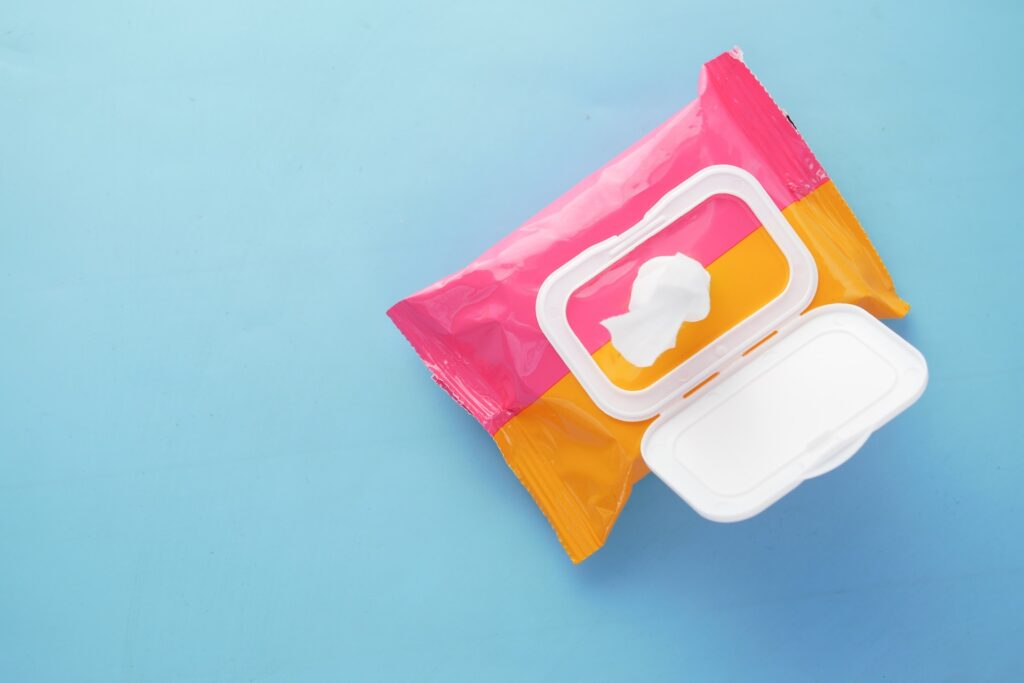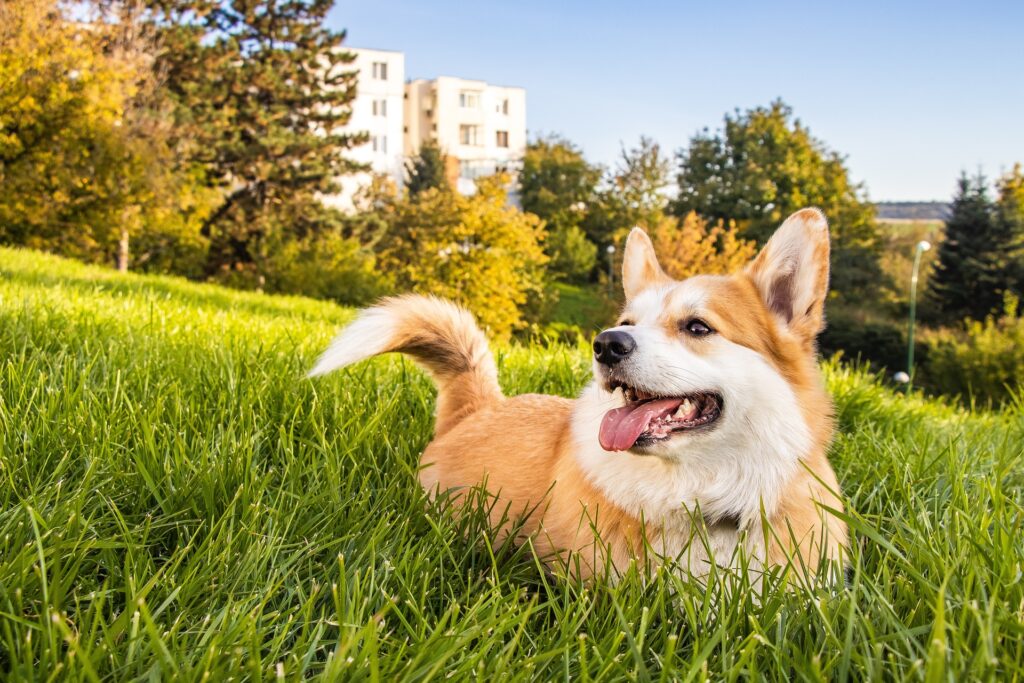During the summertime, one of the few nuisances is the constantly flying flies. Except for us humans, dogs also find flies annoying and sometimes try to eat them. But is this something you should worry about?
You shouldn’t worry too much if your dog ate a fly. Yes, flies can carry a lot of bacteria which have the potential to cause serious health issues. However, rarely do these bacteria transfer to the dog and cause problems. There are still things you should keep an eye on though.
- Is It Common For Dogs To Eat Flies?
- What Diseases Can Dogs Get From Flies?
- Should I Worry If My Dog Ate A Fly?
- What Bugs Are Safe For Dogs To Eat?
- Are Fly Eggs Harmful To Dogs?
- Can You Stop Your Dog From Eating Flies?
- The Dog Is Catching Flies That Aren’t There
Is It Common For Dogs To Eat Flies?
Yes, seeing a dog eating a fly is a normal and common thing. Dogs love eating all kinds of things including flies, crickets, grasshoppers, and even spiders. And there are reasons for this curious behavior of dogs.
Why Do They Do This?
One reason why your dog ingested a fly is that it’s a fun activity for it. Catching a flying insect can be a challenge that many dogs like taking on. This activity is especially present in hunting dog breeds that have a higher prey instinct.
Catching insects will also kill boredom for dogs. They also enjoy the taste of these bugs and consider it a treat. Flies are also annoying with their buzzing, so the dog may eat them out of frustration. Some dogs also may have a compulsion to catch flying insects.
What Diseases Can Dogs Get From Flies?
House flies contain a myriad of different bacteria, viruses, and parasites that can be detrimental to a dog’s health. Some fly-borne diseases that cause wreckage to the dog’s body include Leishmaniasis and Canine Parvovirus Disease. But these bugs can also carry certain toxins that cause disease.
Are Flies Toxic To Dogs?
If your dog accidentally ate a fly it might be facing a danger of intoxication. Generally, flies are not poisonous and won’t directly cause a problem to dogs. Some types of flies, like lantern flies, have been mentioned as being toxic to dogs though.
There are also flies that have been exposed to insecticides. People are using repellents and insecticides to kill all kinds of insects in or around the house. If the dog eats this poisoned insect, it will also ingest some of the insecticide which may also poison the dog. A visit to the animal poison control center may be needed in this situation.
Should I Worry If My Dog Ate A Fly?
Do not worry if your dog has ingested a fly as it will not cause any problems to its health. Occasional ingestion of a fly is not dangerous as they are relatively safe to eat. That said, eating them regularly may expose the dog to some diseases.
Usually, your dog may experience some digestion problems after eating one too many flies. This is not a big problem and will pass in a few days. Be sure to check the environment for any signs that the dog ate more flies than deemed safe. If there are too many dead flies on the ground, you might have a problem on your hands.
Symptoms To Look Out For
If your dog ingested an insect accidentally, there are a few symptoms you can look out for indicating a visit to the animal healthcare specialist.
- The dog has diarrhea at night, or it lasts more than 24 hours.
- Nausea and an upset stomach
- Losing appetite and thirst
- Frustration and irritability
- Fever and shaking
- Losing consciousness
Noticing any of these symptoms gives you a sign that something is wrong with your dog. Visit the veterinary clinic as soon as possible for advice and help.
What Bugs Are Safe For Dogs To Eat?
So flies are a safe bug for dogs, but there are a few other bugs you may catch your dog munching on. Grasshoppers are an example of a safe insect to eat. But there are many unsafe insects for dogs.
- The mosquito carries heartworm larvae that cause heartworm disease.
- Fleas carry tapeworms, while cockroaches, crickets, and beetles also carry worm eggs and larvae.
- Stink bugs cause stomach upset, while ladybugs irritate the tongue and mouth.
- Bees, wasps, and hornets can sting the dog and cause a big skin reaction.
- Some spiders, like the black widow and brown recluse, carry venom that is life-threatening.
- Snails, slugs, and earthworms carry lungworms.
Are Fly Eggs Harmful To Dogs?
You do not have to worry if your dog swallowed a fly egg as its digestive system contains enough acids to destroy these eggs before they cause problems. Fly eggs are more dangerous if laid in an open wound causing a disease known as Flystrike.
Once the eggs hatch in the wound, they turn into larvae. These larvae start feeding on the flesh of the dog causing damage. If not treated, it can lead to toxic shock and death. Luckily, regular cleaning and proper hygiene will prevent this problem from happening.
Can You Stop Your Dog From Eating Flies?
If you are worried that your dog mistakenly ate a flying bug, you should take measures to prevent that from happening again. One thing you can do is to teach the “leave it” command to the dog and make it drop anything it has in its mouth. Having a toy to redirect its attention will also work.
The best way to prevent it from eating flies is to get rid of them altogether. Using insecticides and pesticides is effective but also dangerous to the dog. So you can try homemade repellents that work. One way would be to leave a little wine in a bigger bottle and entrap the flies in it.
If the dog already ate a fly and has mild symptoms, you can try treating its symptoms at home. Pumpkin is great for dog diarrhea, and a lot of water is needed as well. If the symptoms get worse, take the dog to the veterinary emergency room.
The Dog Is Catching Flies That Aren’t There
There are situations where a dog will chase and snap at flies, while there are no actual flies present. This is a mental problem in dogs, sometimes referred to as obsessive-compulsive disorder or OCD. It develops in dogs that are too exposed to catching flies and even laser pointers, that they always look out for bugs even when they are not there.
Dogs may also show this behavior as a result of a focal seizure. This happens in dogs prone to epilepsy. Contacting your vet will be the most beneficial thing to do in this situation. A dog obedience school can also help with canine behavior modification.
So What Can You Do If Your Dog Ate A Fly?
Flies are annoying little bugs that annoy us and our dogs, especially during summer. But dogs have found a way to relieve themselves of the frustration of dealing with the bug by simply eating it up. It is the dog’s instinct to do this and it is generally not a dangerous activity.
That said, flies can carry a lot of bacteria, viruses, and parasites that can be detrimental to a dog’s health. Diseases like Leishmaniasis and Canine Parvovirus Disease are transferred by flies. Flies can also be killed by insecticides which are also dangerous for dogs if ingested.
Noticing symptoms like nausea, fever, and loss of consciousness after your dog ingested a flying bug means you should visit the vet. To prevent the dog from eating flies, you need to train it properly or get rid of as many flies as you can.
FAQ
Can eye problems cause phantom fly chasing?
If vitreous floaters form in the eye of the dog, it may perceive them as flies and start chasing them, even though they are not there. These floaters can be caused by old age or diseases like cataracts.
Why do flies like to bite dogs?
Dogs will attract flies if their coats are matted or unclean. Flies are attracted by moisture and decay. If the dog suffers from some disease and has diarrhea or vomits, flies may be attracted by the smell and bite them.
Will changing a dog’s diet help with fly chasing?
Nutritional deficiencies cause compulsive eating habits. Some dog owners suggest giving higher-quality food to dogs as a way to prevent them from eating flies. Dog food from a reliable source like Pedigree and Purina is a good place to start.
What household or garden items attract flies?
Uncovered trash cans, spoiled food and drinks, uncleaned dog poop, dog food leftovers, and uncleaned drains can all attract flies. If your dog ate a fly, check in your house to see what is attracting them.
Why are flies attracted to dog poop?
Dog poop contains ammonia which attracts flies that have ammonia receptors on their antenna. Once they reach the poop, they lay their eggs which turn into maggots and feed on the poop.
What To Do If Your Dog Ate A Baby Wipe: Advice And Solutions
Dogs like to chew on things and sometimes they will get their chompers on something…
Why do Dog Leave Odorless Wet Spots? And how to treat them
It is not uncommon for dog owners to notice that their dog leave odorless wet…
Why Does My Dog Only Have Diarrhea At Night? [How To Help]
Diarrhea is not an uncommon thing and most dogs will suffer from it at least…
A Complete Guide To The Corgi Heat Cycle [+ Tips]
Going into heat is what we refer to when we talk about periods in dogs….
Should I Feed My Dog Before Or After A Walk? [Simplified]
Of what we know of dogs, they love two things, eating and walking. These two…
Dog Ate Tampon – How Long Will It Take To Pass Easily?
Dogs are curious creatures by nature, and it’s no wonder that they scout for inedible…








